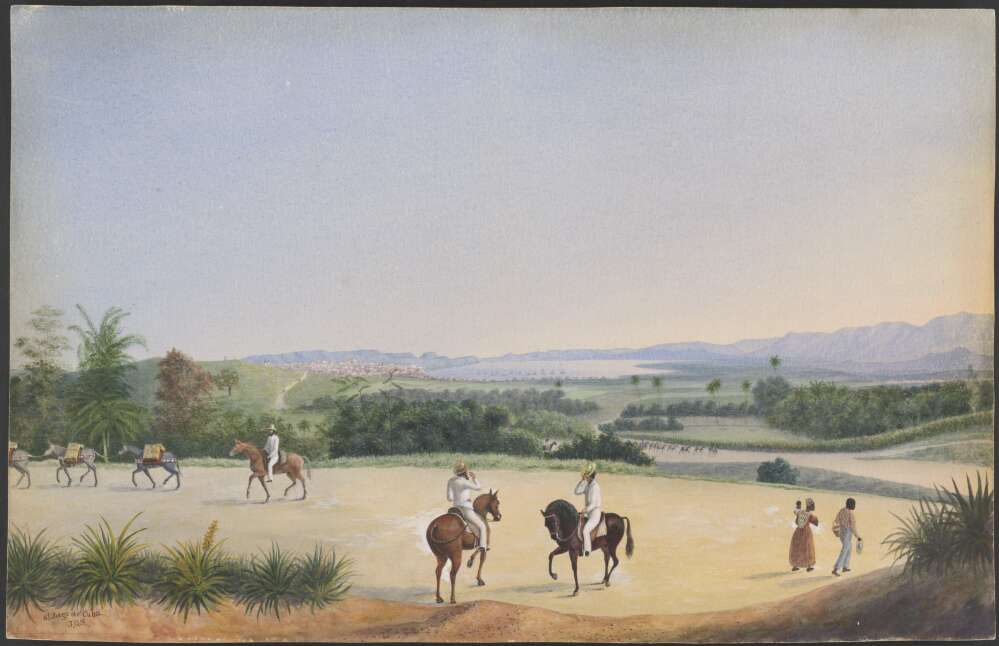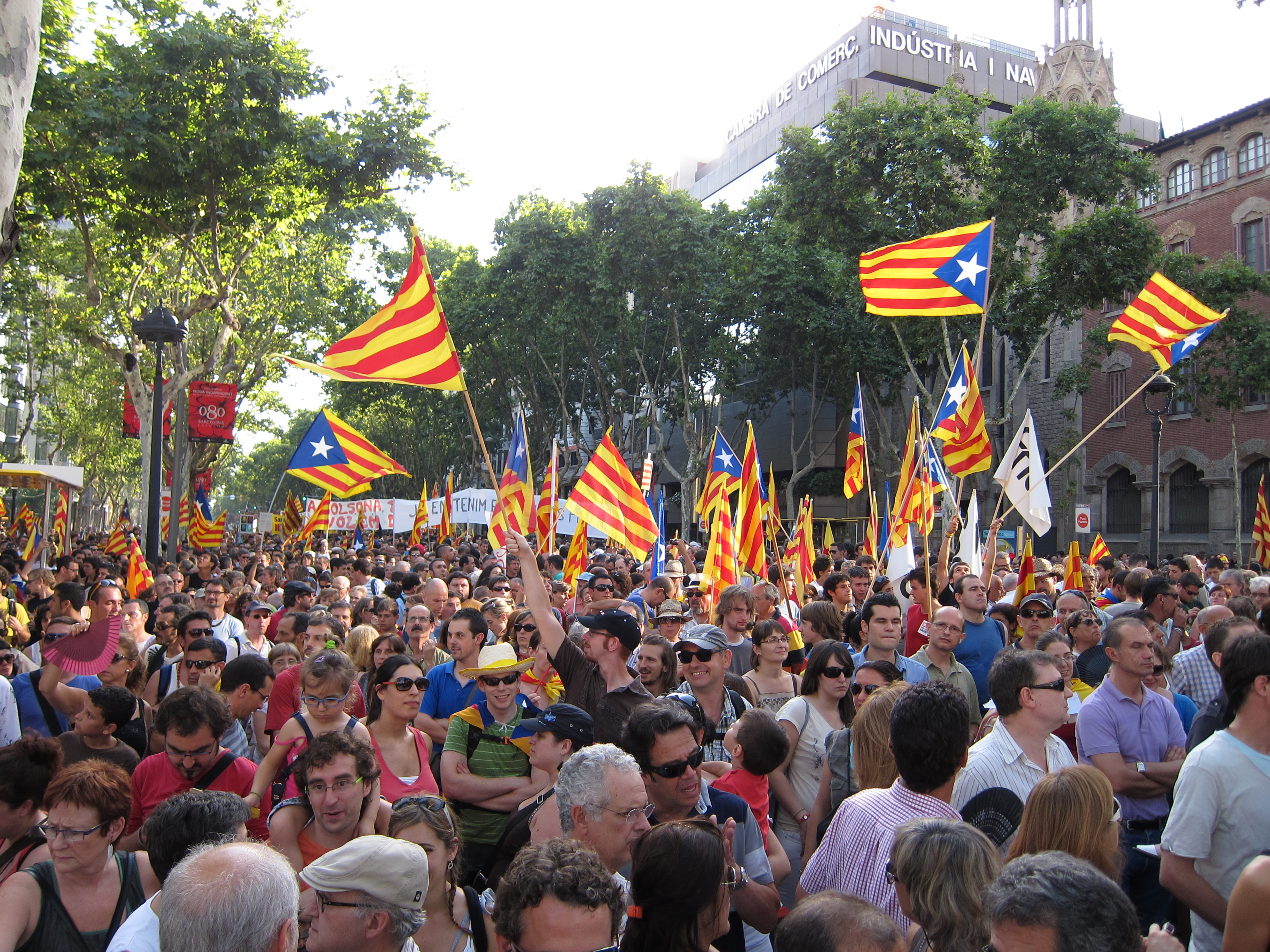|
Marcel·lí Perelló I Domingo
Marcel·lí Perelló i Domingo () born in (Barcelona in 1897? - died Mexico City 1961) was a Catalan people, Catalan guerrilla politician and newspaper writer. He was the first Secretary of Estat Català. He was part of a plot against the Spanish Throne, was imprisoned and exiled to Mexico. The Plot of Garraf He was son of Frederic Perelló i Arnús and Magdalena Domingo i Selma, he was the commander of the Catalan State squads ''escamots'' d'Estat Català and belonged to Black Flag (Bandera Negra). He directed the Garraf plot, Plot of GarrafCrexell, Joan. ''El complot de Garraf''. Barcelona: Abadia de Montserrat, 1988, p. 39. (Biblioteca Serra d'or; 79). that, in 1925, intended to kill Alfonso XIII of Spain, Alfonso XIII and all his family, placing an explosive device at Garraf railway, where the royal train would pass by. A traitor caused the plot to fail, and Perelló and his fellows were condemned to death penalty, death. Later, their sentences were commuted to life bec ... [...More Info...] [...Related Items...] OR: [Wikipedia] [Google] [Baidu] |
Marcelino Perelló Valls
Marcelino Perelló Valls (1944 – 5 August 2017) was a figure of the Mexican Student Movement of 1968, and the representative of the School of Sciences of the National Autonomous University of Mexico (UNAM) to the National Strike Council (CNH). Perelló was a member of the Mexican Communist Party (PCM) from 1965 until his death in 2017. At the beginning of the movement, he was arrested on July 27 after the police raided the PCM’s semi-clandestine premises on Mérida street on July 26, 1968, in Mexico City; he was released next day because his political connections. After the Tlatelolco massacre, he hid in Europe the following year; he was in exile for 16 years. He was in France, Romania and Spain, and in 1975 he graduated in Mathematics from the University of Bucharest, and two years later he obtained a master's degree in Science from the same institution. As a professor, he taught at the University of Barcelona from 1977 to 1985; at the Autonomous University of Sinaloa fro ... [...More Info...] [...Related Items...] OR: [Wikipedia] [Google] [Baidu] |
Year Of Birth Missing
A year or annus is the orbital period of a planetary body, for example, the Earth, moving in its orbit around the Sun. Due to the Earth's axial tilt, the course of a year sees the passing of the seasons, marked by change in weather, the hours of daylight, and, consequently, vegetation and soil fertility. In temperate and subpolar regions around the planet, four seasons are generally recognized: spring, summer, autumn and winter. In tropical and subtropical regions, several geographical sectors do not present defined seasons; but in the seasonal tropics, the annual wet and dry seasons are recognized and tracked. A calendar year is an approximation of the number of days of the Earth's orbital period, as counted in a given calendar. The Gregorian calendar, or modern calendar, presents its calendar year to be either a common year of 365 days or a leap year of 366 days, as do the Julian calendars. For the Gregorian calendar, the average length of the calendar year (the mea ... [...More Info...] [...Related Items...] OR: [Wikipedia] [Google] [Baidu] |
1961 Deaths
Events January * January 3 ** United States President Dwight D. Eisenhower announces that the United States has severed diplomatic and consular relations with Cuba (Cuba–United States relations are restored in 2015). ** Aero Flight 311 (Koivulahti air disaster): Douglas DC-3C OH-LCC of Finnish airline Finnair, Aero crashes near Kvevlax (Koivulahti), on approach to Vaasa Airport in Finland, killing all 25 on board, due to pilot error: an investigation finds that the Captain (civil aviation), captain and First officer (civil aviation), first officer were both exhausted for lack of sleep, and had consumed excessive amounts of alcohol at the time of the crash. It remains the deadliest air disaster to occur in the country. * January 5 ** Italian sculptor Alfredo Fioravanti marches into the U.S. Consulate in Rome, and confesses that he was part of the team that forged the Etruscan terracotta warriors in the Metropolitan Museum of Art. ** After the 1960 Turkish coup d'état, 1960 ... [...More Info...] [...Related Items...] OR: [Wikipedia] [Google] [Baidu] |
Politicians From Catalonia
A politician is a person active in party politics, or a person holding or seeking an elected office in government. Politicians propose, support, reject and create laws that govern the land and by an extension of its people. Broadly speaking, a politician can be anyone who seeks to achieve political power in a government. Identity Politicians are people who are politically active, especially in party politics. Political positions range from local governments to state governments to federal governments to international governments. All ''government leaders'' are considered politicians. Media and rhetoric Politicians are known for their rhetoric, as in speeches or campaign advertisements. They are especially known for using common themes that allow them to develop their political positions in terms familiar to the voters. Politicians of necessity become expert users of the media. Politicians in the 19th century made heavy use of newspapers, magazines, and pamphlets, as well a ... [...More Info...] [...Related Items...] OR: [Wikipedia] [Google] [Baidu] |
Santiago De Cuba
Santiago de Cuba is the second-largest city in Cuba and the capital city of Santiago de Cuba Province. It lies in the southeastern area of the island, some southeast of the Cuban capital of Havana. The municipality extends over , and contains the communities of Antonio Maceo, Bravo, Castillo Duany, Daiquirí, El Caney, El Cobre, El Cristo, Guilera, Leyte Vidal, Moncada and Siboney. Historically Santiago de Cuba was the second-most important city on the island after Havana, and remains the second-largest. It is on a bay connected to the Caribbean Sea and an important sea port. In the 2012 population census, the city of Santiago de Cuba recorded a population of 431,272 people. History Santiago de Cuba was the fifth village founded by Spanish conquistador Diego Velázquez de Cuéllar on July 25, 1515. The settlement was destroyed by fire in 1516, and was immediately rebuilt. This was the starting point of the expeditions led by Juan de Grijalba and Hernán Cortés to the ... [...More Info...] [...Related Items...] OR: [Wikipedia] [Google] [Baidu] |
Catalan Independence Movement
The Catalan independence movement ( ca, independentisme català; Spanish: ''independentismo catalán'') is a social and political movement (with roots in Catalan nationalism) which seeks the independence of Catalonia from Spain. The beginnings of separatism in Catalonia can be traced back to regionalist and nationalist movements of the mid–19th century, influenced by romantic ideas widespread in Europe at the time. The first organised Catalan independence party was Estat Català (Catalan State), founded in 1922 by Francesc Macià. In 1931, Estat Català and other parties formed Esquerra Republicana de Catalunya (Republican Left of Catalonia, ERC). Macià proclaimed a Catalan Republic within Spain in 1931, subsequently accepting autonomy within the Spanish state after negotiations with the leaders of the Second Spanish Republic. During the Spanish Civil War, General Francisco Franco abolished Catalan autonomy in 1938. Following Franco's death in 1975, Catalan political partie ... [...More Info...] [...Related Items...] OR: [Wikipedia] [Google] [Baidu] |
Casablanca
Casablanca, also known in Arabic as Dar al-Bayda ( ar, الدَّار الْبَيْضَاء, al-Dār al-Bayḍāʾ, ; ber, ⴹⴹⴰⵕⵍⴱⵉⴹⴰ, ḍḍaṛlbiḍa, : "White House") is the largest city in Morocco and the country's economic and business center. Located on the Atlantic Ocean, Atlantic coast of the Chaouia (Morocco), Chaouia plain in the central-western part of Morocco, the city has a population of about 3.71 million in the urban area, and over 4.27 million in the Greater Casablanca, making it the most populous city in the Maghreb region, and the List of largest cities in the Arab world, eighth-largest in the Arab world. Casablanca is Morocco's chief port, with the Port of Casablanca being one of the largest artificial ports in the world, and the second largest port in North Africa, after Tanger-Med ( east of Tangier). Casablanca also hosts the primary naval base for the Royal Moroccan Navy. Casablanca is considered a Global Financial Centre, ranking 54th g ... [...More Info...] [...Related Items...] OR: [Wikipedia] [Google] [Baidu] |
Diario De Barcelona
The ''Diario de Barcelona'' (catalán: ''Diari de Barcelona'') (The Barcelona Journal) was a newspaper founded in 1792 in Barcelona, Catalonia, Spain. With a few interruptions it was published in paper form until 1994, and in digital form until 2009, making it one of the oldest newspapers in Europe. It has been called the most important newspaper in Barcelona's history, or the first real chronicle of Barcelona. History Permission to publish a journal was granted to Pedro Husson de Lapazaran, a Neapolitan printer. It was written in Spanish and acted as an official journal, publishing official notices. Around the turn of the 18th century readers began to demand content in Catalan and during the period of Napoleonic rule it was temporarily published with parallel French and Catalan text. After the War of Independence, on 6 June 1814, the right to publish passed to Antoni Brusi i Mirabent, and subsequently to his descendants, as a result of which it was popularly called ''El Bru ... [...More Info...] [...Related Items...] OR: [Wikipedia] [Google] [Baidu] |
Francesc Macià
Francesc Macià i Llussà (; 21 September 1859 – 25 December 1933) was a Spanish politician from Catalonia who served as the 122nd president of the Generalitat of Catalonia, and formerly an officer in the Spanish Army. Politically, he evolved from an initial regenerationism of Spain to the defense of the Catalan Republic, becoming the first president of the restored Generalitat and achieving the first successful establishment of the self-government of Catalonia of modern history. Life Early years Francesc Macià i Llussà was born in Vilanova i la Geltrú, Catalonia, Spain. Shortly after the death of his father, when he was 16, he entered the Military Academy of Guadalajara to join the Corps of Engineers of the Spanish Army, specializing in bridges, railways and telegraphs. He requested to be transferred to Cuba but was sent several times to Barcelona, Madrid and Seville, rising from telegrapher to captain. As an officer in the Spanish army, he favored its modernization. He ... [...More Info...] [...Related Items...] OR: [Wikipedia] [Google] [Baidu] |




